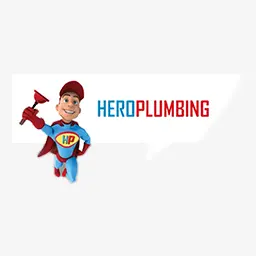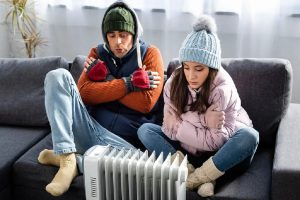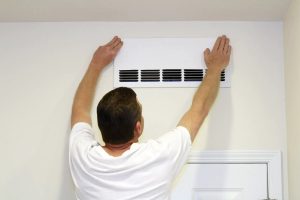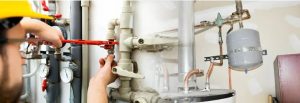Table Of Contents
Gas Heaters And Lung Safety
Indoor air quality is paramount to the safety of your home in Sydney, Australia. Thus, it is always essential to ensure that you have fresh and clean air to breathe. With clean air, you stay healthy and do not experience other problems. Maintaining clean air can be a challenge at times because of the many appliances you use at home. Some of these appliances emit by-products that affect the quality of the air you breathe.
One of the appliances that can affect the quality of the air you breathe is a gas heater. Your gas heater can lead to indoor air pollution if it is not maintained correctly. One of the body parts that is affected by dysfunctional gas heaters is the lungs. This article looks at the ways that gas heaters can affect the lungs. Just read on to find out.
How Does A Gas Heater Affect Quality Of Indoor Air?

Indoor air quality in Sydney is critical to your health and that of your family members. Your entire gas heating system can have massive effects on your overall body health. Your gas heater may have more detrimental health effects, especially if it has problems that need repairs. This is why it is always crucial to perform regular inspections to determine if your gas heater requires instant maintenance.
Your gas heater can affect your overall body health through toxic gas emissions or improper infiltration of dirt and dust. In most cases, your lungs, which are the major breathing organs in your body, are affected by inhaling toxic gases and dust. Here are some ways your gas heater can affect indoor air quality and affect your lungs.
Old Filters
There may be several air filters that are used in your heating system. With old filters, there are high risks of the gas heater emitting toxic gases and other air pollutants that can affect your entire breathing system, including the lungs. With older filters, several contaminants, dirt, and dust do not get filtered effectively when the gas heater is running.
The older the appliance, the higher the risks of having more allergic reactions because of improper filtration of dirt and dust. Therefore, it is advisable to replace the air filters every three months, especially during cold weather conditions.
Toxic Emissions
If your gas heater is new and does not require repairs, it means you are somehow safe in terms of toxic emissions. However, if you have taken quite some time before servicing your appliance, there are high risks of toxic gas emissions from your house.
The appliance has an increased risk of contaminating your space with carbon monoxide, a toxic gas. Some of the significant symptoms of carbon monoxide inhalation include nausea, headaches, confusion, and dizziness. The gas may also have severe effects on your lungs.
Old Heaters
If your gas heater is more than ten years old, it can negatively affect your indoor air quality. The older your appliance is, the higher the unit’s chances of not circulating your indoor air in the right way. This can lead to contaminants which you might end up breathing in.
The pollutants will then go down and affect your lungs. As a result, ensure that you get your heater serviced at least once a year. You should also consider replacing it if it is ten years old and keeps on requiring repairs.
How Can Gas Heaters Affect Your Lungs?
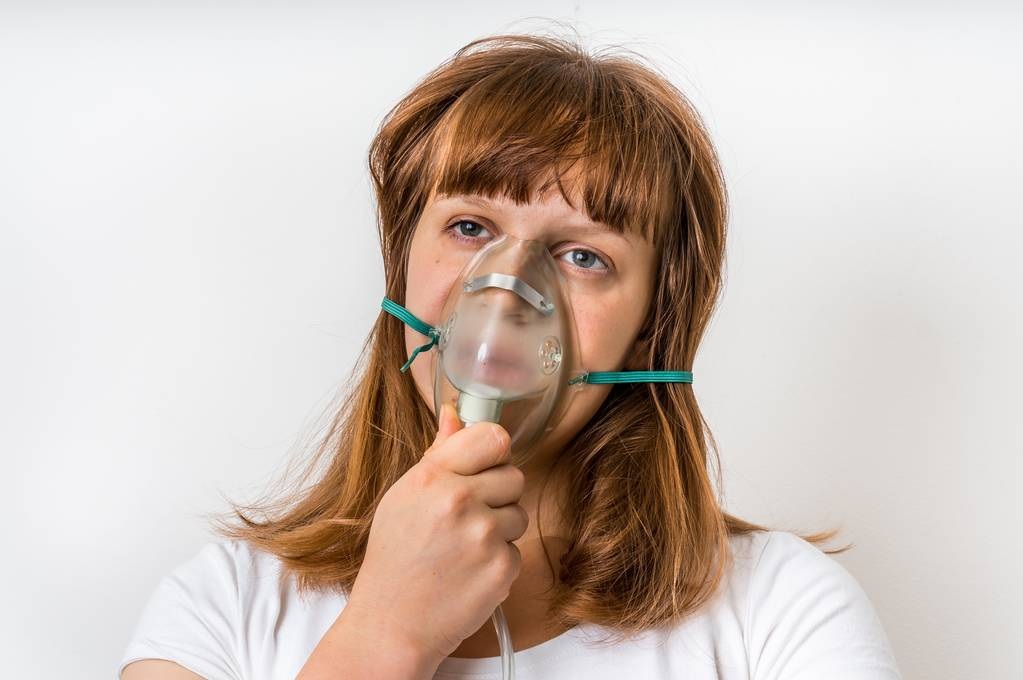
On average, you or your family members spend a reasonable amount of time indoors. This means that if there is poor air quality, it can significantly impact your overall body health. When your gas heater burns, it emits a wide range of substances that can negatively affect your health. Some of the gases released by your appliance include nitrogen dioxide, carbon dioxide, and carbon monoxide. Other tiny particles pass through your throat, nose and go into your lungs.
Here are some of the significant ways that gas affects your health.
Respiratory Problems
As mentioned above, the contaminants emitted by a gas heater increase the risks of respiratory issues that can negatively affect your lungs. These pollutants also increase the chances of asthma. These gases also cause asthmatic reactions among adults and children. Using a gas heater without the correct ventilation increases the risk of getting asthma and other respiratory problems.
They can also reduce your lung function and cause other issues such as rhinitis. If your gas heater does not have an extraction flue from your outside heater, it will emit high levels of nitrogen dioxide. This increases the risk of lung problems among the members of your household.
Carbon Monoxide Poisoning
Carbon monoxide (CO) is emitted in small quantities by gas heaters. Carbon monoxide poisoning often occurs when there is a build-up of the gas in the air, which happens when there are issues with the appliance. Inhaling CO can cause confusion, headaches, tiredness, loss of consciousness, and shortness of breath. In addition, this can also cause death. Bear in mind that carbon monoxide is specifically dangerous since it is odourless, colourless, and tasteless.
This means you cannot detect if you get exposed to a high amount of this gas without a CO detector. When you inhale carbon monoxide, its particles get absorbed by the lungs. These particles then attach themselves to your red blood cells, just like oxygen does. However, your blood cells usually bond quickly with the carbon monoxide particles compared to the oxygen particles. This compromises the oxygen levels in your body, which in turn causes asphyxiation or oxygen deprivation.
Since carbon monoxide deprives your body’s cells of oxygen, your respiratory system finds it hard to deliver the right amount of oxygen to your body. This appears as shortness of breath, especially when performing strenuous activities such as physical workouts. However, remember that you can still struggle to breathe even without performing physical activities. If you continue inhaling carbon monoxide, your ability to obtain oxygen is severely compromised.
With the increase of carbon monoxide in your body tissues, your heart has to work harder as it tries to pump what ought to be oxygenated blood from your lungs to other parts of the body. This makes the lungs work harder than is required. In turn, your airways swell, and less air will get into your lungs. After prolonged exposure, your lung tissues get destroyed, leading to lung diseases.
Signs Your Gas Heater Is Affecting Your Lungs
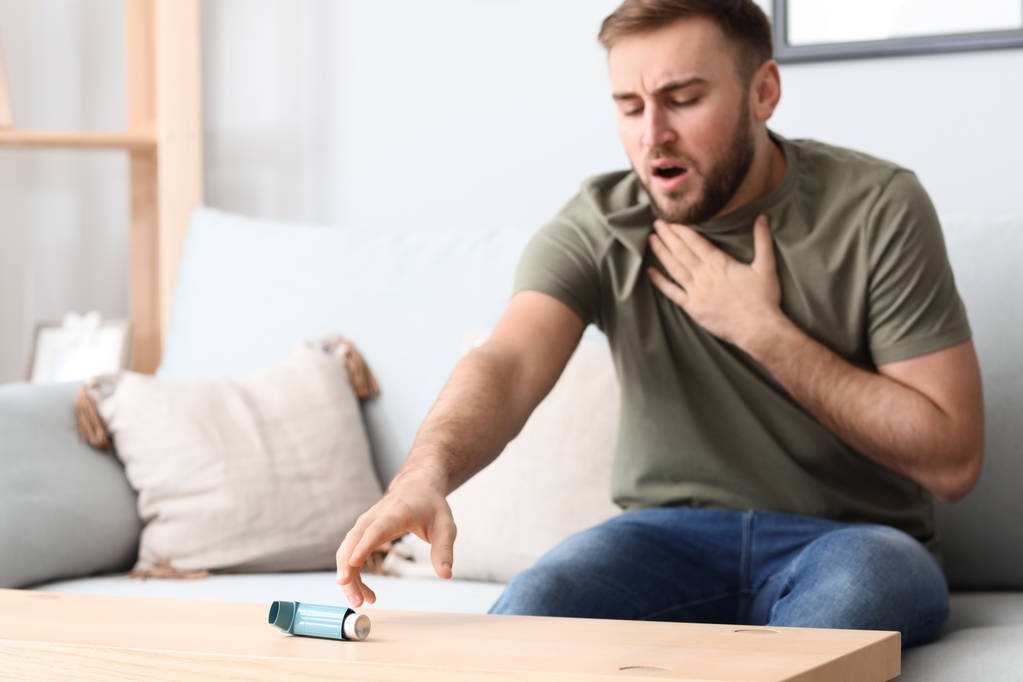
It is essential to keep in mind that signs of a lung infection resulting from your gas heater may not be felt instantly. Most of these symptoms develop with time, so it is good to note them as early as possible so that you can prevent their escalation to more severe health issues. As mentioned above, carbon monoxide is odourless and tasteless, which means there may be CO in your indoor air without your realisation.
As an indication that your gas heater is affecting your lungs, you might start experiencing the symptoms that come about due to these toxic combustion by-products. Here are some of the signs you need to register:
Chronic Cough
If your lungs are affected by irritants or other toxic gases, you might realise that you have a persistent cough. Thus, if you experience a cough for more than a month or two, it indicates an issue with your lungs or other parts of your respiratory system. Contaminants or other gases emitted by your heater may be the cause.
Constant Shortness of Breath
You can experience shortness of breath after exercising. However, if you struggle to breathe in general even without partaking in any strenuous activities, it is a warning sign that your lungs have issues requiring immediate attention.
Mucus Production
Mucus, also referred to as phlegm or sputum, is usually produced by your airways as the body tries to defend itself against irritants and infections. If you experience mucus production for more than a month, this is a sign that your lungs are infected.
Wheezing
Wheezing or noisy breathing indicates that your lungs’ airways have an unusual blockage. The blockage might be making them too narrow, thus leading to noisy breathing. Contaminants such as dirt from your gas heater may be the cause.
Unending Chest Pains
If you experience unexplained chest pains that persist for more than a month, it is a sign that your respiratory system is being affected by your gas heater. If the pain intensifies when you cough or breathe in, you need to seek medical help immediately.
Reducing Indoor Air Pollution From Your Gas Heater
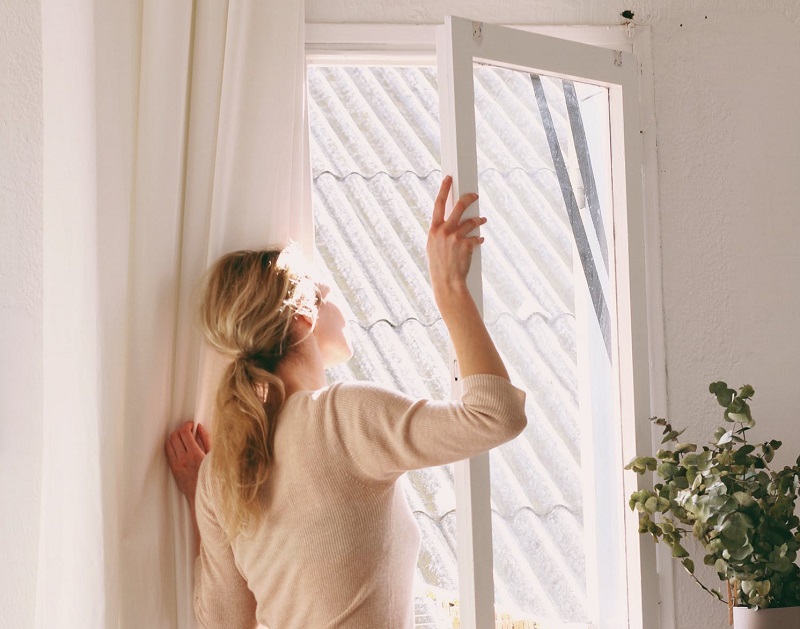
Now that you have taken note of the many adverse health effects that your gas appliance can have on your lungs, keep in mind that prevention always trumps any attempt at a cure. As such, you need to look for solutions to ensure that your gas heater does not emit contaminants or other gases that can affect your lungs and the entire respiratory system.
It is not as hard as it seems because you can be assured of high-quality indoor air with a fully functional gas heater. Here are some of the ways to reduce indoor air pollution from your gas heater:
Turn On the Vent Fan
One of the most important things you can do is turn your fan’s ventilation hood on when you are in the house. Then, allow about twenty minutes afterwards. This is necessary to enable it to capture and filter out all the pollutants from your gas heater. To ensure that the vent fan is performing optimally, you can hold a tissue close to the fan and turn it on. The fan’s air suction usually draws the tissue against the grill. The tissue will remain there when the fan is on.
Open Your Windows
You can also help remove all impurities in the air by opening your windows. However, this does not aid in capturing and filtering out pollutants from your space. Instead, opening the windows allows for efficient air exchange. This helps your area have fresh air.
Besides, it helps in diluting the concentration of the contaminants. Therefore, as a preventive measure, it is always good to ensure that you have one or several windows open any time you are relaxing in your house with your gas heater on.
Use Air Purifiers
Air purifiers help reduce indoor air pollution by capturing all impurities with a filter. They then push the clean air back into your room. There are different types of purifiers that you can use in your home. Some are available at pocket-friendly prices, so even if you have a limited budget, you can afford them. However, remember that air purifiers usually work effectively in smaller spaces. As a result, if you have ample room, you should look for other ways to clean your indoor air.
Perform Regular Inspections
You should consider having your gas heater inspected regularly. Your professional gas plumber can help inspect and detect if the appliance has an issue that requires instant repairs. This is necessary because a poorly maintained gas heater has a high chance of emitting higher amounts of pollutants. In addition, ensure that you regularly check the carbon monoxide detectors and replace the batteries when needed.
Turn to Flued Heaters
Flued gas heaters are appliances that are vented outdoors like gas ducted central heating and gas fireplaces. They are safer than unflued gas heaters since most emissions are directed outside your house. This usually means that even if there are some contaminants in your space, they do not affect the indoor air quality.
However, even if you have unflued gas heaters, you should never use them in a small area, depending on their rated capacity. This is necessary because the emissions can go up to unsafe levels.
Beware of Dysfunctional Gas Heaters
If you observe the proper precautionary measures, gas heaters can be used safely indoors. They will work perfectly and never produce toxic gases or other contaminants that affect your lungs or other parts of your respiratory system. However, it is also good to note that dangerous levels of contaminants can occur if your heater is faulty. A faulty gas heater can emit a lot of toxic by-products, including nitrogen dioxide and carbon monoxide, that can affect your health.
Gas heaters are bound to get faulty at one time or the other. The best way is to ensure that your gas heater is inspected and maintained by a professional gas plumber. It is good for this to be done at least once a year to ensure that it is running properly. Moreover, you also need to have a carbon monoxide detector as it alerts you if there is carbon monoxide present in your room.
Inspect the Air Ducts

Your gas heater air ducts help in distributing hot air throughout your room. This helps ensure that your room is warm and cosy to relax in. If the air ducts are not installed well and maintained, they can lead to the distribution of contaminants from one room to the other in your home.
With time, dander, ducts, and even mould can build up in your air ducts, compromising the overall indoor air quality. So, you need to check the air ducts and ensure that they are circulating clean and fresh air in your house. Hire the best plumber to help check the ducts and take the right actions to ensure they work perfectly.
Are Other Types Of Heaters Better?
By focusing on the effects that gas heaters may have on your lungs, it might leave you wondering whether other heater types are better. To make a more informed choice, you just need to consider the risks posed by other types of heaters and find out if they are generally better than gas heaters. You need to note that switching to other types of heaters will not eliminate all the pollutants in your indoor air.
This is because all other heaters also produce fine particles that could also lead to respiratory issues. Other fuel sources such as wood and coal emit higher amounts of air pollutants. These pollutants have a higher amount of carbon monoxide and other particulate matter. They also have other toxic chemicals that can have detrimental effects on your health.
Gas heaters produce fewer contaminants than most other heaters, making them better options for your house heating needs. However, electric heaters usually produce lower levels of air contaminants than gas heaters. Thus, you can enjoy a reduced amount of nitrogen dioxide and other pollutants by turning to electric heaters. Generally, before you can change to another type of heater, you should also consider other aspects so that you can make a worthy decision.
Need Gas Heater Inspection And Repair Services?
If you find out that you are developing some respiratory issues as a result of your gas heater and cannot determine the issue, it is prudent to hire the best plumber in Sydney to check your gas heater. The plumbers will conduct a thorough inspection of your appliance to ensure it is in perfect condition.
They can check if there is an accumulation of dust in the air ducts, air filters, and other parts that may be compromising your indoor air quality. Moreover, they will help do all the maintenance and necessary repair works to ensure that your gas heater is working effectively and does not pollute the air.
As a general rule, when you experience the above symptoms of lung problems, you should seek medical attention immediately.




